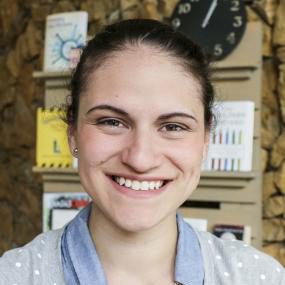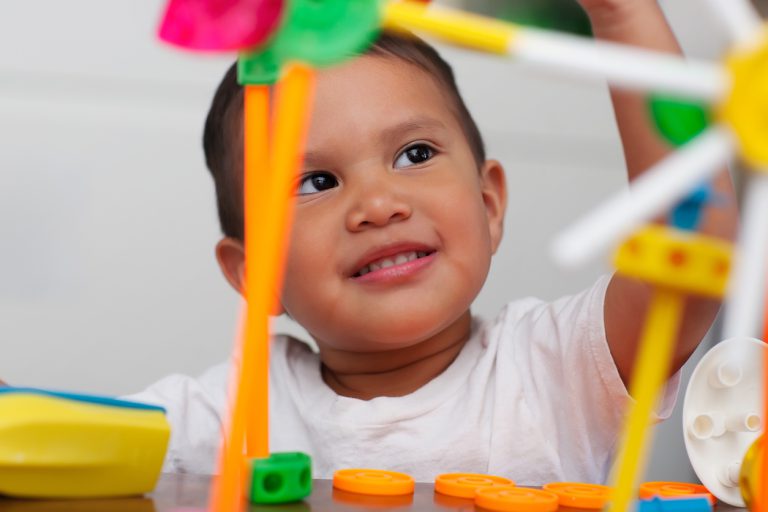Originally published in the Winter 2022 Issue of Kansas Child Magazine.
The early years of a child’s life help build a foundation for future learning, health, and success. Parents, providers, and communities play a critical role in ensuring that children have the supports and resources they need to thrive.
By participating in a social-emotional screening, providers of all kinds can evaluate a child’s development, address any potential concerns, and connect families to services and supports in their community. Screenings can also help build relationships with families — opening conversations and empowering parents to invest in their children’s social-emotional health.
The early childhood system in Kansas is partnering with families to better understand children’s social-emotional development by using the Ages & Stages Questionnaires®: Social-Emotional, Second Edition (ASQ:SE-2). This questionnaire, completed by the guardian/caregiver, provides a snapshot of a child’s social-emotional development in the areas of social-communication, adaptive functioning, compliance, autonomy, self-regulation, interaction with people, and affect.
Through community access, ASQ Online is now available to any community partner that serves children ages zero to five and that would like to administer developmental screenings. Anyone who works with infants and young children can utilize the tool and play a key role in developmental and social-emotional screening — including medical providers, mental health providers, home and center-based child care providers, home-visiting programs, and early intervention services.
Sharing ASQ results with families can be a great way to engage with them and build a strong positive partnership. How you communicate this information is key. It’s important the families feel a part of this process and that their expertise about their child is heard.
Learning about your students’ home lives, personalities, and interests can contribute to a caring, kind, and fun classroom atmosphere.
Early childhood and education providers can implement consistent, predictable routines and offer flexibility in how students position themselves for learning. Because young learners are just developing self-regulation skills, opportunities for co-regulation might be appropriate for many. Providers can also look out for potential indicators of trauma and consider strategies to ensure that children’s basic needs are met. Early childhood programs can support student well-being and success by embedding social-emotional learning into all aspects of the day, especially within academic learning.
When you join the Statewide Kansas ASQ Online system, your program will receive an ASQ Online subscription free of charge, and you’ll be eligible for a reduced price on screening kits. The system saves time by enabling families to complete the screening online and automatically scoring the questionnaires.
If you would like to become part of the Statewide Kansas ASQ Online system, visit www.agesandstages.com/ks for more information or to contact your local Community ASQ Enterprise Account Administrator.
-

Jordan Christian
Public Service Executive, Kansas State Department of Education
Jordan has served in his current role with KSDE since 2017. His responsibilities include the State Interagency Coordinating Council (SICC), Local ICCs, and the Kansas Kindergarten Readiness Snapshot (ASQ). Prior to coming to KSDE, Jordan graduated from the University of Kansas in 2016 and worked on political campaigns in Kansas.
-

Erica Figueroa
Project Coordinator on the Early Childhood Comprehensive Systems Impact Project
Erica serves as the Project Coordinator on the Early Childhood Comprehensive Systems (ECCS) Impact Project and supports other Title V connected initiatives including Help Me Grow, Kansas Connecting Communities (KCC) and Lifting Young Families Towards Excellence (LYFTE). Mrs. Figueroa graduated with a Bachelor of Science Degree from Duke University. She majored in Psychology and minored in Global Health. During her time at Duke, she worked in an infant cognitive development lab, examining the process of language development as a child matures. She is currently pursuing a Master of Counseling Psychology at the University of Kansas. She is also a certified trainer for the Ages and Stages Questionnaire® (ASQ) and actively provides trainings across the state of Kansas.






